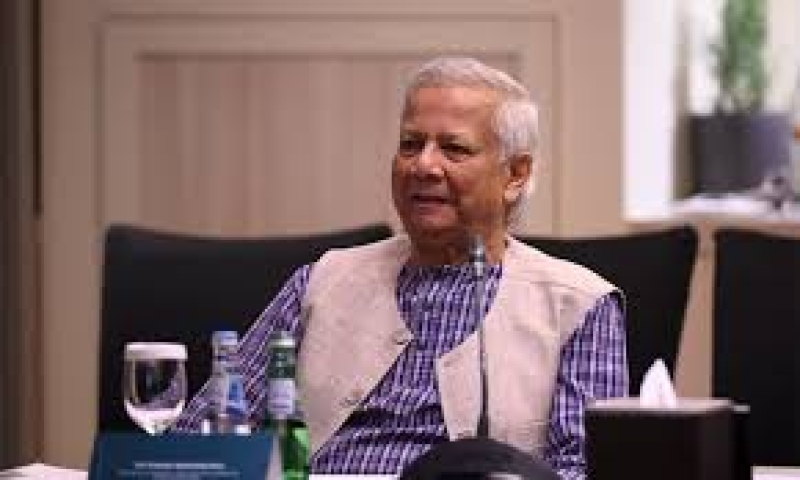- 11-Year Run of Record Global Heat Continues: UN Agency |
- Gaza Ceasefire Not Enough as Children Continue to Die |
- Bangladesh Sets Guinness Record With 54 Flags Aloft |
- Gambia Tells UN Court Myanmar Turned Rohingya Lives Hell |
- U.S. Embassy Dhaka Welcomes Ambassador-Designate Brent T. Christensen |
CA seeks lasting Rohingya solution, more funds from donors

Seeking permanent solutions to the long-pending Rohingya crisis, Chief Adviser Professor Muhammad Yunus today called upon donors to come forward with enhanced contribution to forcibly displaced Rohingyas to protect them from this catastrophic situation.
He made the call while addressing the 80th Session of the UN General Assembly here in the USA.
Prof Yunus said the ongoing conflict in Myanmar has created a situation of deep concern for the entire region.
It threatens not only regional stability, but also the prospects for the safe return of the forcibly displaced Rohingya sheltered in Bangladesh, he said.
Eight years on, the Chief Adviser said, the Rohingya crisis continues without any solution in sight. "Moreover, Bangladesh faces a slow, but a regular flow of the Rohingya people seeking protection," he added.
Evidently, the chief adviser said, deprivation of rights and persecution of the Rohingya rooted in cultural identity-based politics continue in Rakhine. He said reversal of the process of marginalization of the Rohingya cannot wait any further.
Most of the discriminatory policies and practices that made them vulnerable can be reversed and remedial measures can be advanced without waiting for a comprehensive national political settlement in Myanmar, he said.
Prof Yunus said there must be a political solution to the problems in Rakhine involving the ethnic stakeholders there so that the Rohingyas become part of the Rakhine society with equal rights and as equal citizens.
Towards these ends, a sustainable repatriation in safety and security must lead the process for restoration of their rights and their ultimate reintegration with dignity, he said.
Prof Yunus said Bangladesh has been drawn into this crisis as the second victim after the persecuted Rohingya.
"Yet, we must remember that the Rohingya crisis is not a bilateral issue with Myanmar. Bangladesh has been realizing its part of obligation as a responsible neighbour and a committed member of the international community.
"But our collective goal of maintaining a minimum standard of living in the camps face a situation of potential collapse given the funding crunch," he said.
The chief adviser said the World Food Programme warns of a critical funding shortfall for its emergency response.
Without urgent new funding, monthly ration may have to be halved to a paltry US$ 6 per person, pushing the Rohingya deeper into hunger, accentuating their malnutrition, and forcing them to resort to desperate measures, he said.
He said further cuts will no doubt intensify protection and security risks, transcending much beyond the camps.
"Hence, I call upon existing donors to come forward with enhanced contribution and potential donors to make announcements of generous contribution to prevent this catastrophic situation," Prof Yunus said.
He said the International community, beyond new and enhanced funding for humanitarian assistance, must apply pressure on Myanmar or the non-state actor in Rakhine to bring positive changes there and to seek political solutions urgently.
The chief adviser said the neighbouring countries must assume their responsibilities.
Bangladesh will remain available for any assistance or contribution needed towards stabilization of Rakhine that the international community collectively agrees, he said.
The chief adviser said Bangladesh expects that the upcoming high-level Conference on September 30 next will galvanize global resolve and generate concrete international support for the Rohingya, with the top-most priority of diversified and additional funding, reports BSS.
"Parallely, it must agree on a process with time-bound deliverables as part of a globally accepted roadmap towards seeking permanent solutions to the Rohingya crisis," he said.

